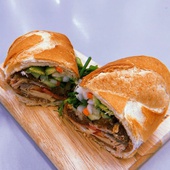Of the ones that give back
The new breed of tourists these days do not just come, ask for what they want and leave. Many want to make the experience fulfilling to both the hosts and the guests.
The new breed of tourists these days do not just come, ask for what they want and leave. Many want to make the experience fulfilling to both the hosts and the guests. That’s when the so-called responsible travel comes in. But in Vietnam, where businesses are over-clocked trying to make up for the lost time, the seemingly short number of companies that offer the service is driving many uneasy.

There are two things to consider in evaluating a community-benefitting and eco-friendly tour company. Those that are mindful enough often promote both aspects. As the name suggests, first the firm has to include local input in developing its approach. It is to show respect for the indigenous culture and to help preserving their ways, not interfering or altering. Since the cultural differences between that of tourists and one of native people can be staggering, practices that are considered absolutely normal for outsiders can be quite inappropriate for the people.
Worse yet, some habits are fast learned and can replace traditions, which in turn create devastating damage, sometimes permanently. Case in mind: in 4000-year-old Vietnam, if the sudden surge in profit of the new trade drives any particular group away from their once main source of income and gradually depending on it, it completely changes the way they have been for thousands of years. Some traditions will be abandoned as they are no longer needed, creativity once focused on the rice field now diverted to the art of haggling, modern housing replaced old stilt shed to serve the need of “homestay” tourists. Already, in Sapa, the old love-market is done for and the hallow ground now hosts performance shows that only pretend to be genuine, with their foul twists spotted easily. Nostalgia alone will not bring it back for the romance-loving poets that have once watched from afar and written countless verses about its charm. Some claims much of the damages are irreversible.
The second aspect of responsible travel may be more familiar. As international media these days are flooded with news of global warming wreaking havoc on the environment, it is only logical that travelers have started asking for eco-friendly tours. Companies begin to offer information about their itinerary’s impact on the environment. Some opt for using organic food, low-emission means of transportation and green accommodation.
The world-famous Intrepid Travel, which has a variety of Vietnam tours, goes as far as including their carbon emission per passenger for the entire trip. Also, being true to their commitment, there are notes on the physical demand and cultural shock ratings as well. Many native tour operators have not yet adapted such hard-core approach.
Of the local companies, here and there, some have recently given in to the calling. There are the pure-blood Footprint, the warm-hearted Paradissa and the prideful Viet Adventure. They come from different backgrounds, with different approaches, but all share the goal of preserving the land and giving back to the people. One sees such goal well imprinted in the principle of the “responsible travel club” members (www.rtcvietnam.org). With the new-found interest of the government and non-governmental agencies in helping to build sustainable industries, they set out to encourage tourists to take trekking and biking tours, go in large groups, to stay and dining in eco-friendly locations.
Meanwhile, some healthy portion of the profit goes back to building the community. Paradissa loves to stress the importance of the community in their sustainable business model. In the mere-one-page About Us, manager Anh Do decides to repeat the word “local” 21 times. That is one Vietnamese man devoted to his society and his course!
There are the downsides to responsible travelling. First, all those organic foods are going to cost, and for the average Tea-Party loyalist, the nonsense at twice the price of irresponsible enjoyment sounds like a bad investment. Then there is the shock when the ever-pleased tourists can no longer do things their way but rather have to adapt. Third, as far as eco-friendliness concerns, there is a certain amount of physical endurance involved. The corporate lawyers who have no idea what a gym is may find it out-of-the-question. Being a niche product that is demanding of its customers, it is quite hard, if not near impossible, for responsible travelling to catch on with the mainstream.
Now, if the likes of Gates and Buffett truly represent the new trend, one may hold on to the notion that indeed one day it may catch on just fine.

Best Things To Do In Moc Chau
Moc Chau Town is among the top-rated tourist destinations in northern Vietnam brimming with ultramodern and natural sightseeing attractions.

Vietnamese Snacks Among Best In The World
Vietnamese cuisine has long been known as among the most abundant and delicious cuisines in the world.

The Most Expensive "Banh Mi" In Ho Chi Minh City That Is Worth A Try
Long queues of Saigoneses, tourists, and shippers in front of the "banh mi" Huynh Hoa shop have long become a familiar scene every afternoon.








